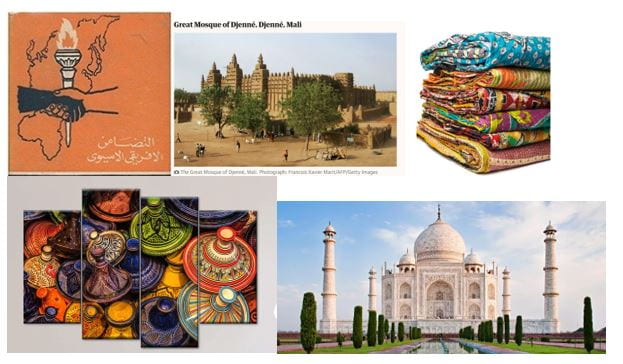 “GLOBAL AFRICA MEETS GLOBAL ASIA” Our first project workshop at NYUAD Jan 21-22, 2023
“GLOBAL AFRICA MEETS GLOBAL ASIA” Our first project workshop at NYUAD Jan 21-22, 2023
SUBSCRIBE to the dedicated Mailchimp list for this project HERE.
This project combines African, Asian, Middle East, and American Studies to explore global mobilities of Afro-Asian interaction in multi-disciplinary, multi-media perspectives. We trace seaborne mobility around the Indian Ocean that formed influential Afro-Asian spaces of economic, political, and cultural life from ancient times. After 1500, seaborne and airborne globalization of Africa and Asia territories and their many intersecting diasporas produced diverse Afro-Asian cultural environments. In the twentieth century, anti-imperial struggles produced influential Afro-Asian alliances in the Third World, Europe, and America. In twenty-first century age of Black Lives Matter, Americans of African and Asian descent engaged complex relationships, struggles, and cultural projects, framed by white supremacy. At the same time, India and China are investing heavily in Africa: Global Asia is displacing The West in Africa, remaking Afro-Asia as space of transnational territorial political economy, which has become the subject of Foreign Policy concern and academic study (African East-Asian Affairs).
PROJECT EVENTS 2021 April 15, 25. The Chinese Community in Jamaica. “Show Me a Mountain: Jamaican Writers & Visual Artists of Chinese Descent.” Organized by Jacqueline Bishop, an award-winning photographer, painter and writer born and raised in Jamaica, who now lives and works in New York City.
With the coming of Emancipation in 1834 to the island of Jamaica, the formerly enslaved sought to leave the site of the plantation in droves. Faced with a shortage of labor on the plantations, the white elite of the island and the imperial powers of Britain turned to countries such as China to fill these labor shortages in an indentureship scheme that would see mainly Hakka Chinese immigrants arriving in Jamaica starting in 1840, though there is evidence of a Chinese presence on the island from as far back as the 1700s. This growing community would see Chinese cemeteries being built on the island, Buddhists temples, and today an area of downtown Kingston has been recognized as the first China Town on the island. “Show Me a Mountain” sheds a spotlight on this dynamic community by having two panel discussions with writers and visual artists who are Chinese of Jamaican descent. This event was sponsored by NYU Liberal Studies.
2022 Feb 18. (4pm) Aisha Khan (NYU), The Deepest Dye: Obeah, Hosay, and Race in the Atlantic World (Harvard University Press, 2021). Spanning post-emancipation plantations in the West Indies and present-day England, North America, and Trinidad, this brilliant study focuses on the contested religious practices of obeah and Hosay, which have been racialized, respectively, as “African” and “Indian,” despite the diversity of their participants. Aisha Khan shows in detail how identities formed under colonialism continue to reiterate inequalities as well as reinforce demands for justice and recognition. Discussants: Lisa Lowe, Jacqueline N. Brown, Ifeona Fulani, Shobana Shankar. Cosponsored by Center for Latin American and Caribbean Studies (CLACS). LINK TO MEETING…………. RECORDING.
Mar 11. (10am) Shobana Shankar (Stony Brook), An Uneasy Embrace: Africa, India and the Spectre of Race (Hurst Publishers, 2021) This groundbreaking intellectual history tackles the controversial question of how Africans and Indians make and unmake their differences. Drawing on archival and oral sources from seven countries, it traces how economic tensions surrounding the Indian diaspora in East and Southern Africa collided with widening Indian networks in West Africa and the Black Atlantic, forcing a racial reckoning over the course of the twentieth century. Through cultural movements, including Pan-Africanism and popular devotionalism, Africans and Indians made race consciousness, alongside economic cooperation, a moral priority. Yet rising wealth and nationalist amnesia now threaten this postcolonial ethos. Discussants: Renu Modi, Neelima Jeyachandran, and Meera Venkatachalam. In collaboration with the Center for the Study of Africa and the African Diaspora. LINK TO MEETING. LINK TO RECORDING … YOUTUBE LINK.
Apr 15. (12pm) Neelima Jeychandran (Penn State) A discussion of Verge: Studies in Global Asias 8.1 (Feb-Mar 2022), a special issue on “Indian Ocean Studies, Afro-Asian Affinities,” co-edited by Emmanuel Bruno Jean-Francois (Penn State) & Neelima Jeychandran (Penn State). This special issue investigates how creative works and aesthetic expressions represent African-Asian affinities in several parts of the Indian Ocean world. Contributions featured in this issue engage with a wide array of objects and practices—including music and dance, poetry and novels, paintings and architectural designs—and consider how they simultaneously capture and shape the imaginary of the Indian Ocean as a space that generates complex definitions of transcultural, translocal, and transnational contacts. Discussants: Prita Meier and Dilip Menon) LINK TO MEETING…RECORDING
Apr 22. (12pm) Awam Amkpa and Gunja Sengupta, Sojourners, Sultans and ‘Slaves’: America and the Indian Ocean in the Age of Abolition and Empire (University of California Press, forthcoming). In the 19th century, capitalism and empire networked the North Atlantic and Indian Ocean Worlds into a global public sphere of contest over the meanings of slavery and freedom. This book mines multinational archives to illuminate the Atlantic reverberations of U.S. mercantile projects, “free labor” experiments, and slaveholding in western Indian Ocean societies. It profiles transnational human rights campaigns, shows how discourses of poverty, kinship, and care could be adapted to defend servitude in different parts of the world, and reveals the tenuous boundaries that such discourses shared with Whiggish contractual notions of freedom. An intercontinental cast of empire-builders and émigrés, slavers and reformers, a “cotton queen” and courtesans, and fugitive slaves and concubines offers windows to competing knowledge productions about “slavery in the East,” and prompts reflections on the comparative workings of subaltern agency. (Afro-Asian Interactions) Discussants: Sarah Khan and Ahmad Sikainga. LINK TO MEETING. RECORDING
RESOURCES
Atlantic Council South Asia Center and Afro-Sino Center for International Research (Accra), “Coexisting and Competing with China in Africa: Indian Perspectives in Ghana,” Virtual Panel Discussion 12 Dec 2022, Full Report: “Global China in Africa: Documenting Indian perspectives from Ghana,” By Veda Vaidyanathan and Arhin Acheampong.
Suzuki, H. “Kanga made in Japan: The flow of cloth from the eastern to the western end of the Indian Ocean world.” In P. Machado, S. Fee, & G. Campbell (Eds.), Textile trades, consumer cultures, and the material worlds of the Indian Ocean: An ocean of cloth, Cham, SUI: Palgrave Macmillan, 2018, pp.105-131.
Phyllis Ressler, “The Kanga, A Cloth That Reveals- Co-production of Culture in
Africa and the Indian Ocean Region,” University of Nebraska – Lincoln. Digital Commons. Textile Society of America Symposium. Proceedings Textile Society of America.
“African jurists in Asia: premodern Afro-Asian interactions Mahmood Kooria” — IIAS Newsletter, Spring 2017
“Afro-Asian Sociocultural Interactions in Cultural Production by or About Asian Latin Americans” by Dr. Ignacio López-Calvo Afro-Asian Networks: Transitions in the Global South Maghan Keita, “Africans and Asians: Historiography and the Long View of Global Interaction,” Journal of World History , 16, 1, 2005, 1-30 (in project Muse) (downloaded PDF)
“Your Attention Please,” an Afro-Chinese legacy film by Tao Leigh Goffe, and her essay, “Chop Suey Surplus: Chinese Food, Sex, and the Political Economy of Afro-Asia,” in September 3, 2020 issue of Women and Performance.

 A RESOURCE PAGE on The World of Afro-Asian Foods, from Krishnendu Ray. (including bibliography and links)
A RESOURCE PAGE on The World of Afro-Asian Foods, from Krishnendu Ray. (including bibliography and links)
Africa and the Gulf Region: Blurred Boundaries and Shifting Ties, edited by Rogaia Mustafa Abusharaf and Dale F. Eickelman (2015). A collaboration of historians, political scientists, development planners, and a biomedical engineer, exploring Arabian-African relationships in their many overlapping dimensions.
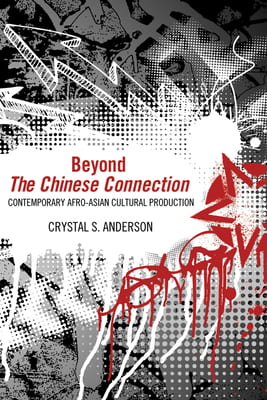 by Crystal S. Anderson
by Crystal S. Anderson
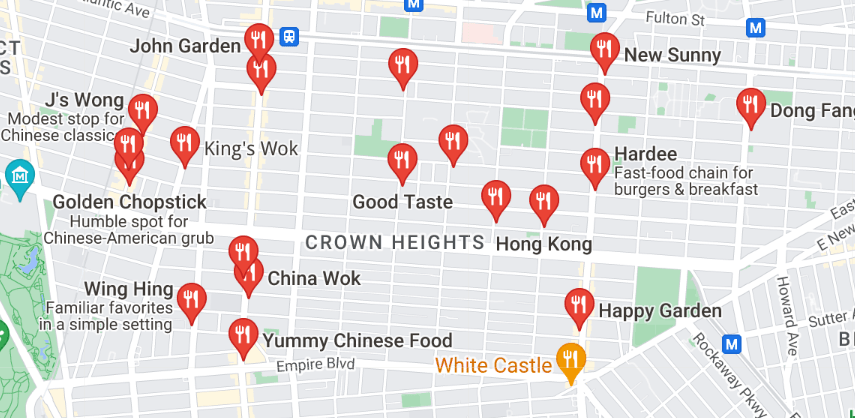
CHINESE FOOD IN CROWN HEIGHTS
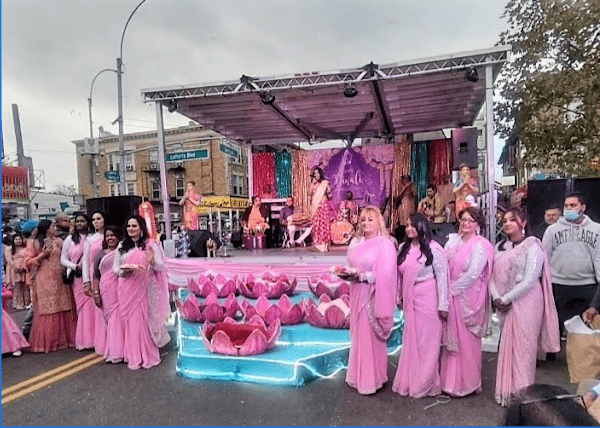 Thirty Blocks around Liberty Ave, 104-134 st
Thirty Blocks around Liberty Ave, 104-134 st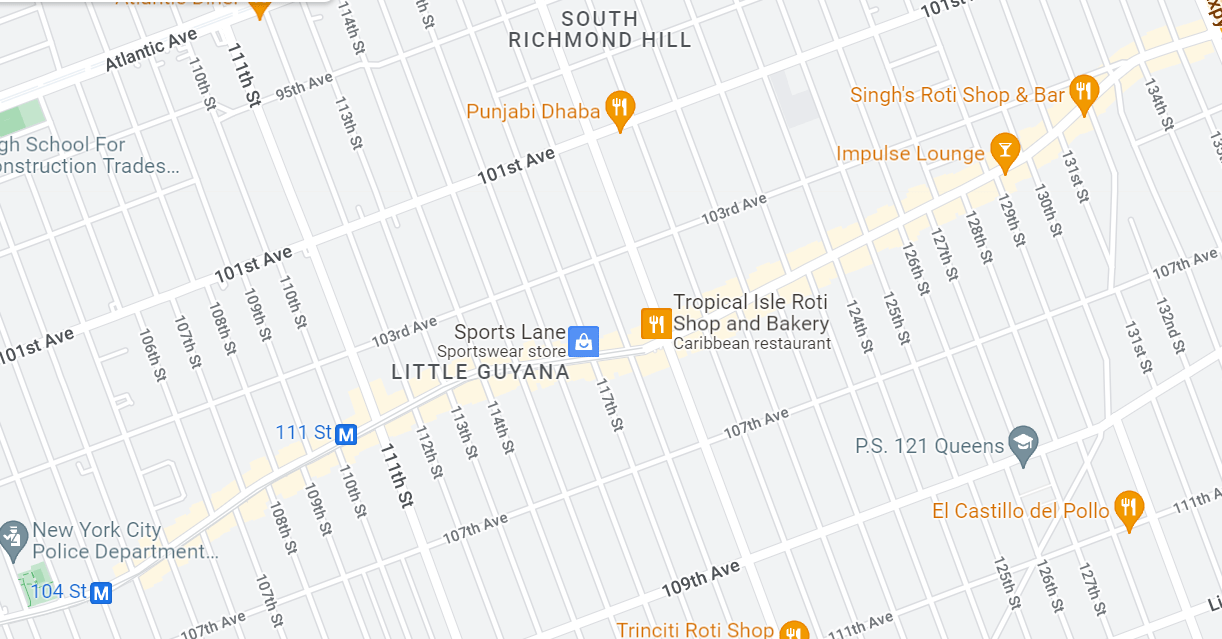 There are approximately 140,000 Guyanese residents in New York City, most of which live in either Richmond Hill or Canarsie and Flatbush in Brooklyn. This makes the Guyanese-American community the second-largest foreign-born group of immigrants in Queens.
There are approximately 140,000 Guyanese residents in New York City, most of which live in either Richmond Hill or Canarsie and Flatbush in Brooklyn. This makes the Guyanese-American community the second-largest foreign-born group of immigrants in Queens.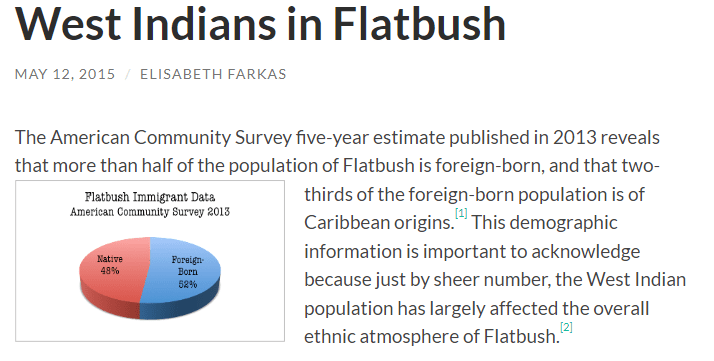
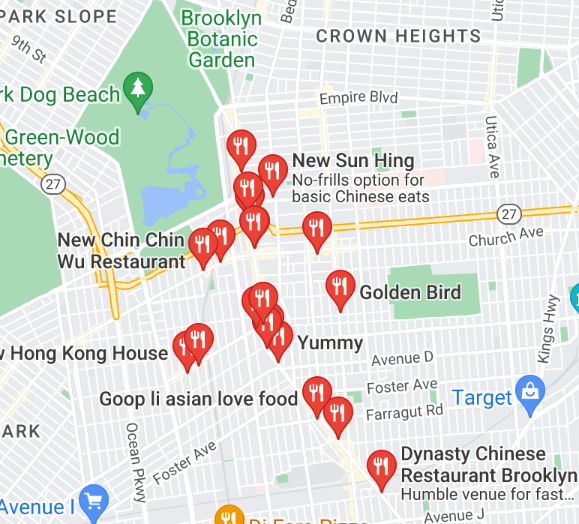
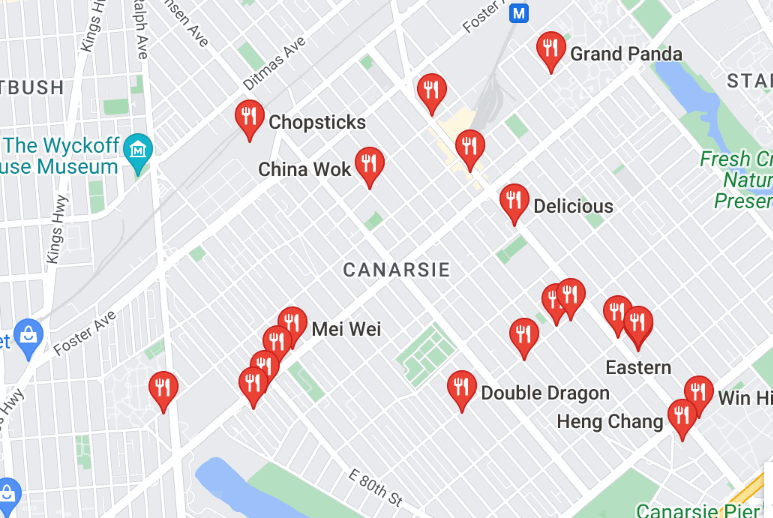 INDIAN FOOD IN FLATBUSH AND CANARSIE
INDIAN FOOD IN FLATBUSH AND CANARSIE



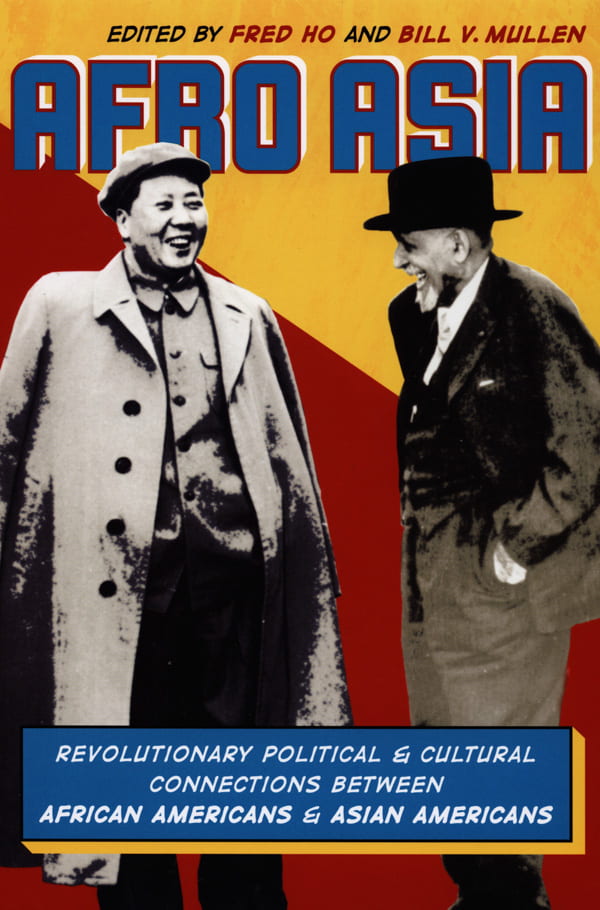 and
and 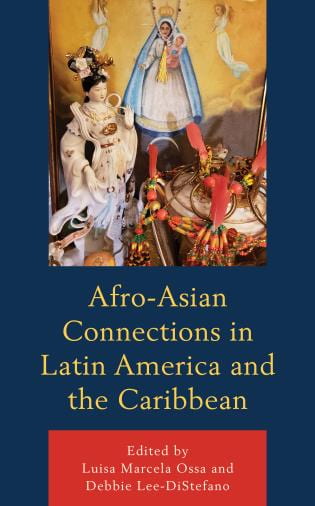 Edited by Luisa Marcela Ossa and Debbie Lee-DiStefano
Edited by Luisa Marcela Ossa and Debbie Lee-DiStefano 

